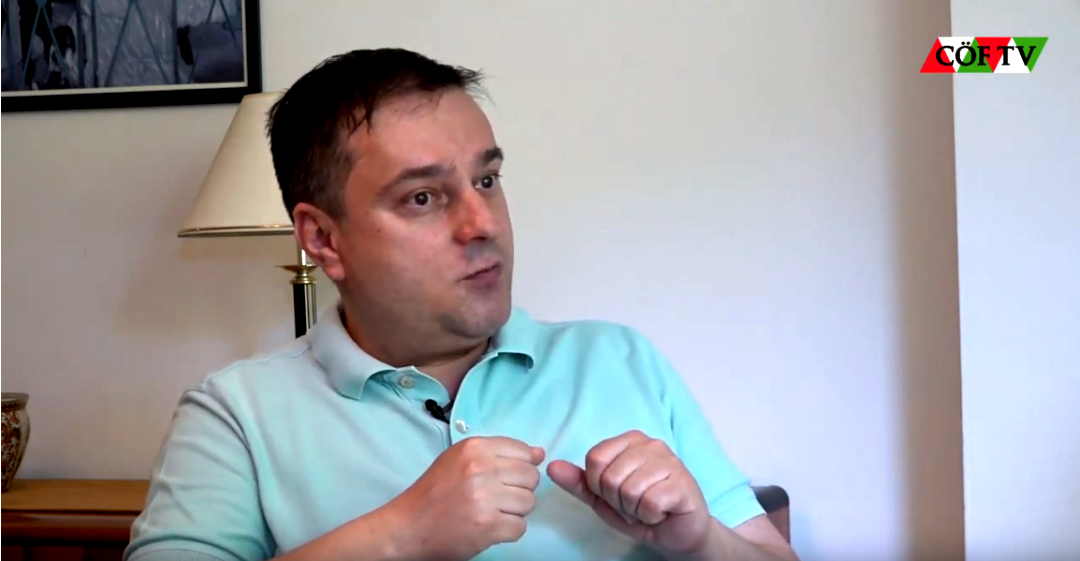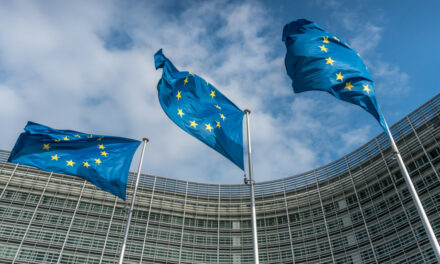The significance of the national consultation is that, knowing the results, the government can negotiate with a stronger authority in the European Union, political scientist Zoltán Kiszelly stated in a statement to Magyar Hírlap, who also spoke about the fact that the shadow government of the DK serves the goals of the left-wing infighting, and that the European Commission its president's message to Italy revealed the true face of Brussels.
"The government always initiates consultations on issues important to Hungarian society, and the point is that the alternatives can clash," said Zoltán Kiszelly, director of the Századvég Center for Political Analysis. – Democracy thrives on different alternatives clashing, and we can discuss different opinions on sanctions even now. The point is a democratic, broad debate, and as a result, the government will get a clear picture of the position of the majority of Hungarians, based on which the government will have a strong mandate in Brussels when the sanctions are discussed. We have also seen this in the case of migration. Even then, Viktor Orbán could safely refer to the fact that this is the opinion of the majority of Hungarians, and with this mandate Hungarian society sent him to Brussels.
According to the analyst, the left tries to avoid the debate and tries to devalue the national consultation because it is usually on the losing side. He said that they would throw away the hot potatoes. During the national consultation and subsequent referendum, they were on the side of immigration when it came to migration. They are not popular at home, they have no support, so they rely on abroad, as we have seen now. Something has to be given for the rolling dollars, which is why the domestic left always represents the globalist position, because it receives support from there. We have seen this in relation to Márki-Zay's money. We are in the same position as in the issue of migration, when they supported the pro-immigration opinion, and now they support sanctions, i.e. they do not represent Hungarian interests, for example, that our country should be an exception for gas transportation, as is the case with oil transportation, since we are more dependent on pipeline transportation, because we have no seaport.
The left immediately adopts the position of Brussels, which is unpopular, so it prefers to avoid the debate through the national consultation, stated Zoltán Kiszelly.
The analyst reminded that the idea of a price cap was raised by the G7 regarding the price of oil, which the union would try to enforce in the case of gas, but none of the ideas were successful. They were based on the fact that there is an OPEC cartel that brings together the major oil-producing countries, and a buying cartel would be created based on this model, so that the union could act as a single buyer. Then you would be able to buy in larger quantities, resulting in a bigger discount, but because of the physical infrastructure, Russia can deliver the fastest and cheapest. Since they cannot avoid Russia, even if they try with a price cap and purchase cartel, these ideas are doomed to failure, since the Qataris, the Norwegians, and the Americans have also said that they will not sell gas cheaper. In a physical sense, it is unsolvable for the Union to receive gas cheaply, quickly and in large quantities, the political scientist stated.
Zoltán Kiszelly drew attention to the fact that political ideas in Brussels always collide with reality. They shot themselves in the foot by giving up Russian oil and gas, but the alternative is more expensive and creates new dependencies, i.e. they want to replace Russian dependency with an American dependency. The problem - that these measures only benefit the United States - is being publicized in more and more American newspapers.
"The Brussels leaders are running away, they want to get rid of Russian energy sources once and for all, and they don't care about short-term needs," said the political scientist. - There are calculations according to which, due to the price-inflating effect of sanctions and Russian counter-sanctions, Europe will have to pay one thousand billion euros more for energy carriers this year than last year. This mercilessly huge sum must be paid with the people of Europe. In the medium or long term, alternative routes may be developed, a technological change may also occur with the faster advance of green energy, but this policy will be welfare victims, and the European middle class will suffer significantly, and tens of thousands of small and medium-sized enterprises will go bankrupt.
The full article of Magyar Hírlap can be read here.
Author: Zsolt Sütő-Nagy
Image: CÖF












